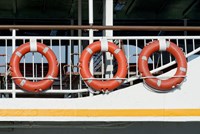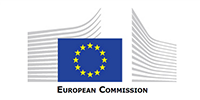
The Commission has today delivered the results of a fitness check carried out on EU legislation applicable to passenger ship safety. In the report, the Commission assesses whether safety standards for passenger ships sailing in EU waters are effective and efficient and identifies how they could be improved and simplified. The report is a result of several years of consultations and evaluations, driven by the Commission's Regulatory Fitness and Performance (REFIT) Programme.
Commissioner for Transport Violeta Bulc underlined "both, cutting red tape and the safety of European citizens are at the heart of the Commission's transport policy".
The Commission envisages proposing a simplified regulatory framework for EU passenger ship safety. Its aim is to remove outdated, ambiguous or disproportionate requirements, and to further improve the effectiveness of search and rescue operations. Where appropriate, the Commission envisages stepping up the efforts to upgrade standards at the level of the International Maritime Organization . This concerns in particular rules concerning the stability of passenger ships when their hull is damaged.
Passenger ships play an important role for the mobility of EU citizens. On average, it is estimated that more than 400 million passengers pass through EU ports every year. 120 million of them are transported between ports within the same Member State.
EU legislation on passenger ship safety has been put in place over time and mainly in response to accidents such as the sinking of the Herald of Free Enterprise in 1987 and the Estonia in 1994, which resulted in the loss of 193 and 852 lives respectively. It complements international and national standards, provides for safer ships and more efficient handling of ship accidents.
The fitness check confirmed that the EU passenger ship safety legislation performs well. Out of the 408 accidents registered for ships sailing between ports of the same Member State (It should be noted in this regard that the incidents involving the Norman Atlantic ferry in December 2014 and the Costa Concordia cruise ship in January 2012 involved ships operating internationally and designed in accordance with international requirements) during the last 4 years, only one has resulted in the fatality of a passenger. While 30 percent of these ships comply with common EU standards, these account for more than 60 percent of the passenger capacity. The respective EU rules have been built up over a period of 15 years and there is scope for modernising them.
The European Commission will further assess safety concerns raised by industry professionals, Member States' experts or passenger associations. For this purpose, it intends to put in place a framework for the exchange of views and best practices.
Finally, the European Commission envisages stepping up the enforcement of existing requirements and invites national administrations to join in these efforts. The European Maritime Safety Agency (EMSA) stands ready to monitor better implementation.
About European Commission
Transport directly affects everyone in Europe. Whatever age we are, and whatever activities we undertake, transport and mobility play a fundamental role in today’s world. The aim of the Commission is to promote a mobility that is efficient, safe, secure and environmentally friendly and to create the conditions for a competitive industry generating growth and jobs. The issues and challenges connected to this require action at European or even international level; no national government can address them successfully alone. The European Commission’s Directorate-General for Mobility and Transport works in concert with the European Union Member States, European industry, citizens and stakeholders.




Comments
There are no comments yet for this item
Join the discussion